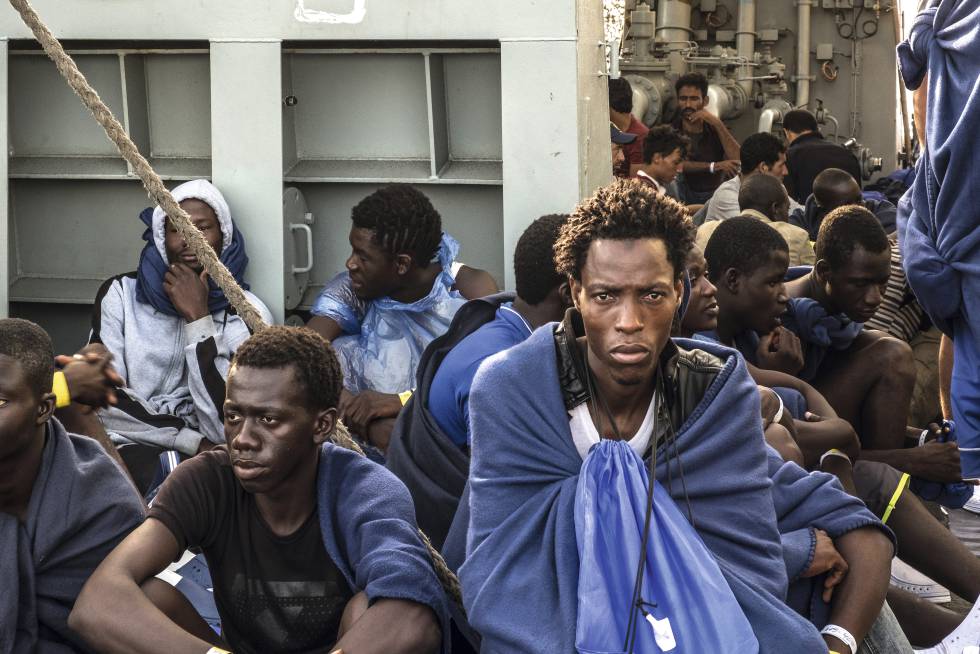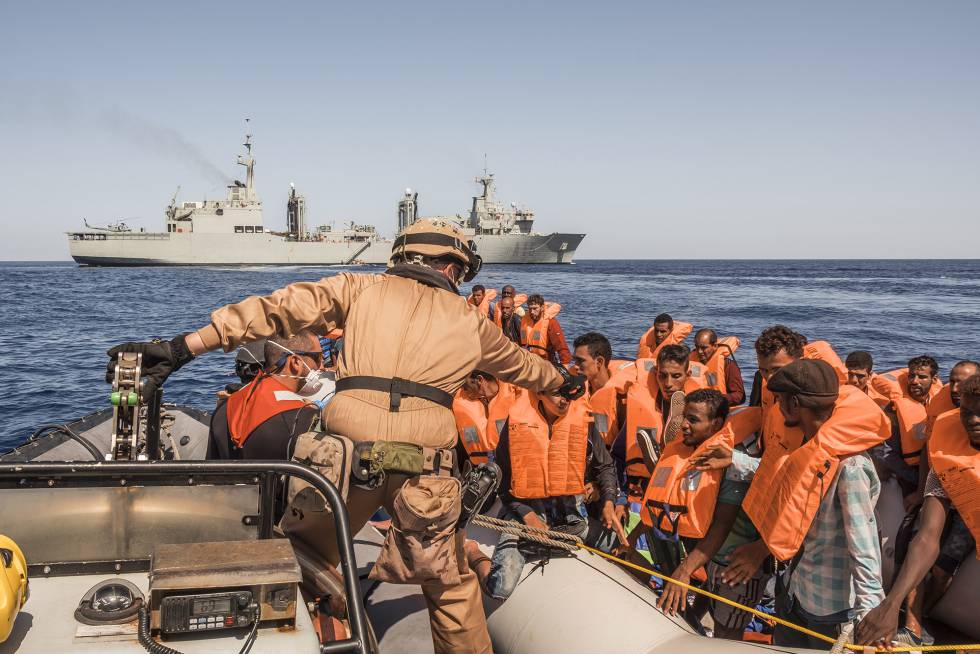A Puzzle Within a Conundrum Within a Problem Leading to a Dilemma
 |
| German Chancellor and leader of the Christian Democratic Union (CDU) party, Angela Merkel (L) and Austrian Chancellor Sebastian Kurz shake hands during the conference of the CDU Economic Council, “Economy Day 2018” in Berlin, on June 12, 2018. |
"A Europe without internal borders can only exist if it has functioning external borders."
"[It is vital that Europe preserve its borderless domain represent -- in a very real sense its raison d'etre -- since free movement of people across those borders] is the basis of the European idea, and we have to do everything to keep it alive."
"[This is] an important moment, a very sensitive time [for European survival]."
"The European Union is not only a great idea, but it's also an idea we must keep working on."
"What every generation must do is try to make Europe better than it was in the past."
Austrian Chancellor Sebastian Kurz
"They [resistant-to-migration European nations] are doing this [through the ascension of populist governments] in the name of Europe. But that is a very different kind of Europe."
"The people who made it to Germany in 2015 crossed many hard borders to get there. So they pick up West Africans and send them back to Egypt?"
Gerald Knaus, director, European Stability Initiative, Berlin
"A lot of difficulties exist with the global asylum-system] But the idea that there is something wrong about claiming asylum in Europe -- that's quite a shift from a group of countries that created the Geneva Convention 60 years ago [governing refugee acceptance]."
"It's not just about what happens on the border, but what happens after the border."
Elizabeth Collett, director, Migration Policy Institute Europe
 |
Could the 28-member-country European Union be any more polarized? Eastern European countries have balked at the EU directive allocating shared acceptance of refugees, haven seekers, economic migrants that have flooded Europe for the past three years. At the same time, Western Europe was welcoming the Middle Easterners and North Africans, some fleeing conflict, exploitation, threats, economic hardships, maladministration and violations of human rights. Some determined to leave their countries of origin to seek haven, others to find economic heaven in wealthy, heavily social-service-oriented countries.
Entering Europe by the dangerous expedient of crowded, inadequate unseaworthy vessels operated by human smugglers disinterested whether those who pay them handsomely for the opportunity live or die, Greece and Italy became the link to Europe, while most of those entering Greece and Italy had no intention of remaining in countries struggling economically, most setting their sights for Germany, Austria, Sweden and other 'progressive', wealthy countries which they felt certain would pull out all the humanitarian stops for them, offering shelter, medical care, food and opportunities to advance.
They were correct in their assessment, and though by EU convention in law refugees were meant to remain in the first country they accessed, the reality is the refugees, haven seekers and economic migrants had other plans and steadily moved northward. To be welcomed initially, but when their numbers continued to swell and the welcoming countries became overwhelmed, their social services stretched to the limit and beyond, their indigenous populations alarmed and resentful, everything changed.
 |
The EU as a liberal European order with trust between nations in a unified and open movement of people and goods is facing the reality of a growing revolt of the public against immigration from the Middle East and Africa. The indulgence of welcoming people from a milieu whose culture, heritage, laws and religion are so at odds with that of Europe in every conceivable index of social progress, equality and gender awareness threatens to swamp native values, ignore their laws and contest the heritage of religious devotion turning the original enthusiasm for acceptance to rejection.
Shutting down Europe's southern border, increasing patrols in the Mediterranean and returning migrant boats to their source -- for the most part Libya and Egypt -- is seen as the solution by Austria, Italy, Hungary and others, in direct challenge to Germany. Yet Germany's Horst Seehofer, interior minister, a Bavarian whose province has firmly rejected any further absorption of migrants, threatened to bring down Chancellor Merkel's government if a hard border was not established.
In interests of preserving her ruling coalition Markel assented, agreeing to turn back asylum seekers already registered elsewhere, along with setting up transit camps along the Austrian border to assess status and arrange deportation when required. Angela Merkel's controversial 2015 decision that Germany was prepared to welcome and absorb over a million refugee/migrant swells heading for a Germany they had heard would welcome them, set the stage for the current emergency Europe is facing. With the knowledge they would not be turned away, they kept coming ... and coming.
Labels: Africa, Crisis Management, Europe, Immigration, Middle East, Migrants, Refugees
0 Comments:
Post a Comment
<< Home